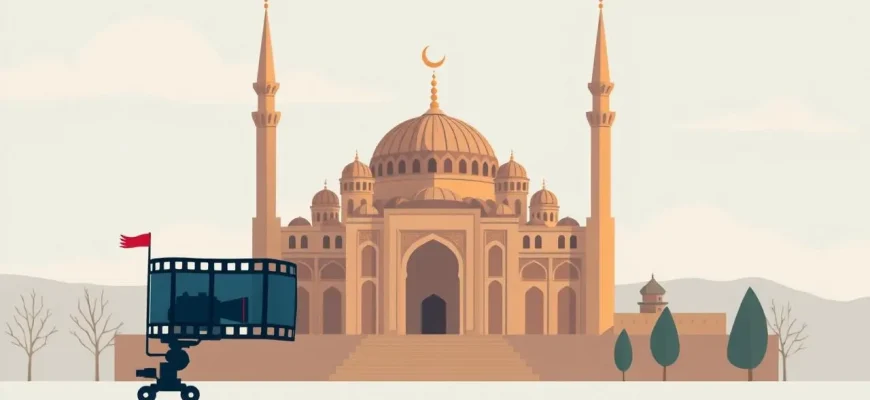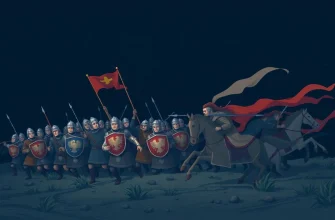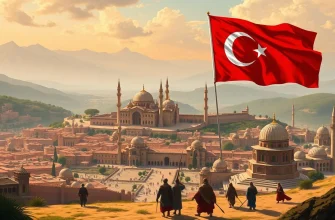The history of Turkic states is a tapestry of conquests, cultural evolution, and political intrigue. These films not only entertain but also educate, shedding light on the lesser-known aspects of Turkic history. From the vast steppes of Central Asia to the sophisticated courts of the Ottoman Empire, this collection of movies offers a cinematic journey through time, showcasing the resilience, culture, and legacy of Turkic peoples.

Genghis Khan (1965)
Description: While not exclusively about Turkic states, this film captures the rise of Genghis Khan, whose empire included Turkic territories, offering insight into the broader historical context.
Fact: The film was shot in Yugoslavia and featured an international cast, including Omar Sharif as Temujin (Genghis Khan).
 Watch Now
Watch Now 
The Lion of the Desert (1981)
Description: Although primarily about Libyan resistance, the film includes elements of Ottoman history, showcasing the complex interactions between different cultures in the region.
Fact: Anthony Quinn's portrayal of Omar Mukhtar earned him critical acclaim, and the film was banned in Italy due to its depiction of Italian colonialism.
 Watch Now
Watch Now 
The Ottoman Lieutenant (2017)
Description: Set during World War I, this film explores the love story between an American nurse and an Ottoman officer, providing a backdrop to the Ottoman Empire's final years.
Fact: The film was shot in Turkey and features stunning landscapes, adding authenticity to its historical setting.
 Watch Now
Watch Now 
Nomad (2005)
Description: This epic drama follows the life of Mansur, a young Kazakh warrior, as he navigates through the tumultuous period of Kazakh unification in the 18th century. It's a tale of bravery, love, and the quest for freedom against the backdrop of the Kazakh steppes.
Fact: The film was a Kazakhstan-U.S. co-production, marking one of the first major international collaborations for Kazakh cinema. It was also Kazakhstan's official submission to the 78th Academy Awards for Best Foreign Language Film.
 Watch Now
Watch Now 
The Conquest of Altai (2013)
Description: Set in the 18th century, this film explores the Altai Khanate's struggle for independence from the Qing dynasty. It's a story of resistance, leadership, and the harsh realities of life in the Altai Mountains.
Fact: The film was shot on location in the Altai Republic, providing an authentic backdrop to the historical events depicted.
 30 Days Free
30 Days Free 
The Last Ottoman: Yandim Ali (2007)
Description: This film delves into the life of Ali, a soldier in the Ottoman army during World War I, showcasing the personal and political turmoil of the Ottoman Empire's final days.
Fact: The movie was one of the first Turkish films to be released in the U.S. with English subtitles, aiming to reach a broader audience.
 30 Days Free
30 Days Free 
The Fall of Constantinople (1951)
Description: A classic Turkish film that dramatizes the siege and fall of Constantinople to the Ottoman Turks in 1453, highlighting the strategic genius of Sultan Mehmed II.
Fact: This film was one of the earliest attempts to depict historical events on a grand scale in Turkish cinema.
 30 Days Free
30 Days Free 
The Conqueror of the World (1962)
Description: This Italian-Turkish co-production focuses on the life of Suleiman the Magnificent, one of the greatest Ottoman sultans, known for his military campaigns and cultural patronage.
Fact: The film was one of the first to portray Suleiman's life in a feature-length format, combining historical drama with epic battle scenes.
 30 Days Free
30 Days Free 
The Mongol (2007)
Description: This film, while focusing on the early life of Genghis Khan, also touches on the Turkic tribes' role in his rise to power, offering a broader historical narrative.
Fact: It was nominated for the Best Foreign Language Film at the 80th Academy Awards, highlighting its international appeal.
 30 Days Free
30 Days Free 
Conquest 1453 (2012)
Description: A Turkish blockbuster that dramatizes the conquest of Constantinople by Sultan Mehmed II, focusing on the military strategies and personal sacrifices involved.
Fact: It was the most expensive Turkish film ever made at the time of its release, with a budget of around $17 million.
 30 Days Free
30 Days Free 








